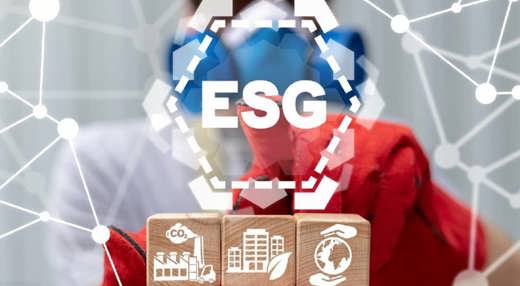Contact us now to learn more about what we can offer you.
USA: Fourth National Climate Change Assessment
12 April 2021
The USA’s fourth Climate Change assessment set forth a high level summary of key messages, including mitigation and adaptation.
These high level messages are summarized as follows:
|
Communities |
Climate change creates new risks and exacerbates existing vulnerabilities in communities across the United States, presenting growing challenges to human health and safety, quality of life, and the rate of economic growth.
|
|
Economy |
Without substantial global mitigation and regional adaptation efforts, climate change is expected to cause growing losses to America’s infrastructure and property and impede the rate of economic growth over this century.
Rising temperatures are projected to reduce the efficiency of power generation, while increasing energy demands will result in higher electricity costs. The impact of climate change beyond the US border is expected to increasingly affect trade and the economy, including import and export prices and U.S businesses with overseas operations and supply chains.
|
|
Interconnected Impacts |
Climate change affects the natural, built, and social systems we rely on individually and through their connections to one another. These interconnected systems are increasingly vulnerable to cascading impacts that are often difficult to predict, threatening essential services within and beyond the Nation’s borders.
|
|
Actions to Reduce Risks |
Communities, governments and businesses are working to reduce risks from, and costs associated with, climate change by taking action to lower greenhouses gas emissions and implement adaptation strategies. While mitigation and adaptation efforts have expanded substantially in the last four years, they do not yet approach the scale considered necessary to avoid substantial damage to the economy, environment, and human health over the coming decades.
|
|
Water |
The quality and quantity of water available for use by people and ecosystems across the country are being affected by climate change, increasing risks and costs to agriculture, energy production, industry, recreation and the environment.
U.S Caribbean, Hawaii and U.S Affiliated Pacific Islands are threatened by drought, flooding and saltwater contamination.
U.S power plants rely on a steady supply of water for cooling and operations which may become affected by changes in water availability.
|
|
Health |
Impacts from climate change on extreme weather and Climate-related events, air quality, and the transmission of disease through insects and pests, food and water increasingly threaten the health and well-being of American people, particularly populations that are already vulnerable.
|
|
Indigenous People |
Climate change increasingly threatens Indigenous communities’ livelihoods, economies, health and cultural identities by disrupting interconnected social, physical and ecological systems.
|
|
Eco-systems |
Ecosystems and the benefits they provide to society are being altered by climate change, and these impacts are projected to continue. Without substantial and sustained reductions in global greenhouse gas emissions, transformative impacts on some ecosystems will occur. Some coral reef and sea ice ecosystems are already experiencing such transformational changes.
|
|
Agriculture |
Rising temperatures, extreme heat, drought, wildfire on rangelands and heavy downpours are expected to increasingly disrupt agricultural productivity in the United States. Expected increases in challenges to livestock health, declines in crop yields and quality, and changes in extreme events in the United States and abroad threaten rural livelihoods, sustainable food security and price stability.
|
|
Infrastructure |
US infrastructure is facing increasing stress by increases in heavy precipitation events, coastal flooding, heat, wildfires and other extreme events as well as changes to average precipitation and temperature. Without adaptation, climate change will continue to degrade infrastructure performance over the rest of the century with the potential for cascading impacts that threaten the economy, national security and essential services and health and well-being.
|
|
Oceans & Coasts |
Coastal communities, and the ecosystems that support them, are increasingly threatened by the impacts of climate change. Without significant reductions in global greenhouse gas emissions and regional adaptation measures, many coastal regions will be transformed by the latter part of this century with impacts affecting other regions and sectors. Even in a future with lower greenhouse gas emissions, many communities are expected to suffer financial impacts as chronic high-tide flooding leads to higher costs and lower property values.
|
|
Tourism and Recreation |
Outdoor recreation, tourist economies and quality of life are reliant on benefits provided by our natural environment that will be degraded by the impacts of climate change in many ways.
|
Keep up to date with the latest updates
We encourage you to subscribe to our Regulatory Updates to keep up to date with global regulatory changes affecting your business.




